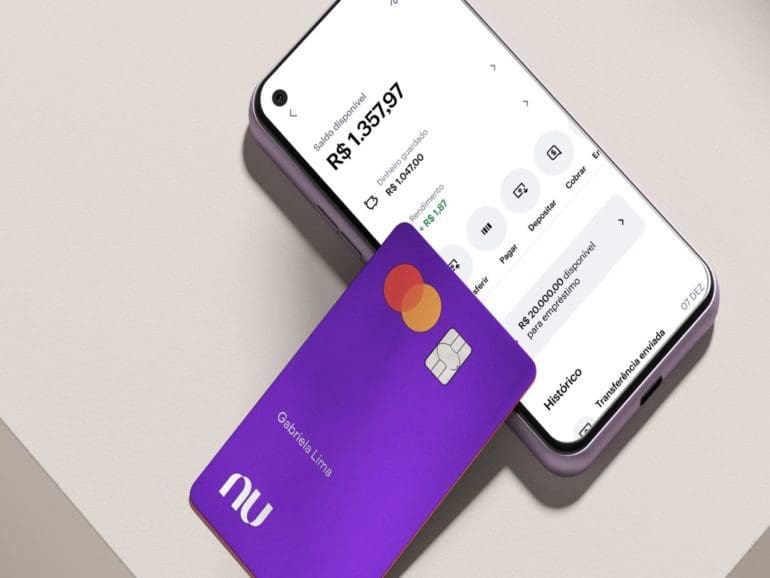At a global level, the number of Initial Public Offerings has declined markedly in the face of rising rates and risks of a recession. The odds for a fintech IPO are descending as valuations have dropped.
But in Brazil, that has been the case for years. Even in the good times, locally-based tech companies decided to go directly to US markets to list their shares. And now that time has come to cut costs, some of the few that trade locally are considering walking away.
Analysts say that local exchange B3 will continue to struggle to attract big-time deals from fintechs, losing deals to U.S. markets despite the latest risk-off mode in global markets and the Nasdaq receding by 35% year to date.
This week, Nubank, the most prominent digital bank in Latin America by the number of clients, said the financial market regulator in Brazil had authorized the company’s decision to call off its registration as a foreign issuer in Brazil and downgrade their locally-traded Brazilian Depositary Receipt.
BDRs are the Brazilian equivalent of ADRs in the United States. The digital bank launched an IPO last year on the New York Stock Exchange, yet it arranged for its shares to be traded locally through BDRs.
Nubank took investors by surprise in September when it announced it would lower the level of its BDR program from 3 to 1. According to Brazilian media, Level 1 BDRs can be issued by companies without registering as a publicly-held companies in Brazil. This reduces bureaucracy as the information produced for investors and regulatory requirements are less burdensome.
The company did not give a concrete reason, yet many believe it is related to costs.
Nubank and Inter have been the exception
Nubank’s decision regarding local BDRs adds up to the delisting of digital bank Banco Inter earlier this year, both the latest illustrations of B3’s frustrated efforts to attract fintech IPOs.
Inter, one of the few locally traded neobanks in Brazil, decided earlier to migrate its stock to US Nasdaq instead.
But beyond the current risk-off environment, the cases of Nubank and Inter have been the exception rather than the norm in the fintech space.
The base of US investors is much more appealing to tech companies, and multiples, although now at a low because of the crisis, are much better than in local exchanges.
“The main reasons are greater exposure to global investors and the ability to raise dollar funds, considering Latin American fintechs are located in countries with unstable currencies,” Bruno Diniz, a fintech adviser in Brazil, told Fintech Nexus. “Also, the fact that they are (listing) in a country with stronger corporate governance rules and legal security.”
One of the market experts’ arguments is that there are simply not enough peers in the Brazilian Bovespa for investors to compare and adequately value companies. The financial sector in the Brazilian stock index is comprised mainly of traditional banks such as Itau, Santander, and Bradesco. Despite their vast size and tight grip on the credit market, these banks typically trade at lower multiples than their US fintech counterparts.
A weak season for IPOs in Brazil
Other large Brazilian financial technology companies, such as PagSeguro, Stone, and XP Inc, have circumvented the local exchange and did an IPO directly in the US.
The president of the B3 had repeatedly stated that it was looking to draw a line in the sand, trying to regain interest from local fintechs and encouraging them to issue shares locally.
So far, those efforts have not borne fruit.
Moreover, the scenario for initial public offerings remains muted this year, even beyond the tech sector. The IPO market in Brazil has been moribund this year, with no deals priced in the first half of the year following 29 different deals in 2021, according to data compiled by Bloomberg.
Foreign investment flows to Brazil falling

Following the global trend, investment flows into the Brazilian equity market have receded sharply. Foreign investors’ buys into IPOs or follow-ons in Brazil are at 18.9 billion Brazilian reais, according to B3 data, down sharply from the golden years. In 2021, the local exchange attracted a record 48.7 billion reais; in 2020 and 2019, the number was 40.3 billion reais and 38.0 billion reais, respectively.
To be sure, a weak season for IPOs is not exclusive to Brazil or Latin America alone. Worldwide, deals have faded in the face of a bear market and plummeting valuations.
Therefore, fintech advisers do not expect Latin American fintechs to seek equity funding even in the US, where the Nasdaq is down 35% year to date.
Related:
- Nubank, LatAm fintechs pivot to profitability pursuit amid rising rates
- LatAm’s Mercado Libre fintech revenue rises by 94%
- Brazil’s Nubank reaches break-even, reports 70 million customers
“We could expect a weak IPO season ahead for Latin American companies in the U.S., at least until the economic turmoil passes,” Diniz said.


